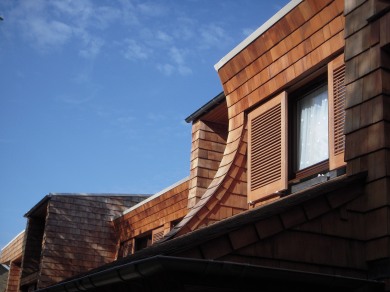It was a long night last night, with my wife out on a mission to pick up her eBay purchases from far flung parts of south west London, and my son – one on Monday – determined to make me weary by crying inconsolably at 3.45 am. It also contained, towards the end on the evening, a programme on BBC1 exploring the relationship between Christianity and comedy.
The programme presented, for want of a better word, by Anne Widdecombe, has had me drifting back to the topic of the programme for most of the day. Essentially, Anne was asking whether Christianity was an appropriate target for comics and comedy, looking at how Christianity had been increasingly attacked by comics and at how severe this had become in the current day. She had a simplistic and naive approach to the subject; one might call it an extreme view and it’s probably a minority view but, like all good programmes, it raised many questions, was reasonably balanced and challenged one’s own beliefs and principles.
I was raised in the north of England in a non-religious household where I was encouraged to attend church once a month only as part of my role in the local cub scout group. We didn’t go to church as a family and, to be honest, what I did see and hear of it didn’t appeal to me a great deal. My schooling wasn’t heavy on religious teaching, though we sang hymns and had assemblies and these – certainly at primary school – we delivered within a Christian context. By 16, my religious studies lessons were very broad – more of a social responsibility/citizenship lesson – and I ultimately failed my O-level which, as far as I can remember, was a test of moral teachings rather than religious ones. I don’t really know what that says about me.
Fast forward to now, I consider myself an atheist. Jesus could have been a real person, but I don’t believe in a god, nor do I believe in his creation of the world and his judgemental omnipresence. I do believe that this is, in it’s heritage, a Christian country and that Christian teachings can guide our behaviour and are valuable to children, but these can be taught without the baggage that having a religion brings. As some of the people close to me do have a faith, I absolutely believe in their right to have those beliefs and I would stand by the right of anyone to hold any belief they like, but a line has to be drawn when those beliefs are imposed on me or anyone else.
The joy in last night’s programme was that it did get me thinking. But the revelation was Anne Widdecombe. Her position seemed clear – her faith is sacred and is not to be challenged, or made fun of, and she was jolly matronly about it for much of the show. She found comedy that attacked Christianity hurtful. She nodded profusely whenever anyone agreed with her devout views, and she argued almost without reason when the right to challenge and question Christianity, and organised religion as a whole, was put forward as a reasonable and justifiable course of action.
During one particularly pivotal section of the programme, Anne made the point that Communion is so important to her that any mockery of it felt like a wound within her; perhaps whilst some mocking of her faith could be tolerated, a line was drawn at the mocking of Communion. The gloves were off.
However, in my view, nothing can be held up as so untouchable that it cannot be challenged or questioned. There is no more likely route to conflict than intransigence. Anne has to recognise that many people do not feel the same as her – she can’t impose her view about Communion on everyone else. In actually being challenged about the importance of Communion, she made a wonderful case to atheist comedian Marcus Brigstocke about why it was so sacred – he saw her point, and her argument moved him. Only by being challenged was she able to explain what made it important to her. Only by challenging was Marcus brought to account.
I’m not convinced that by the end of the programme Anne was any more comfortable with comedy attacking Christianity, though it will no doubt continue. However, the act of mocking, challenging and questioning religion through comedy not only widens the debate, opens out the questions and offers the chance to respond, it also encourages understanding. Anne’s defence of her Communion to Marcus was memorable television, and demonstrated – totally against Anne’s argument – that it’s absolutely essential to question even the most sensitive of subjects to broaden our tolerance and understanding. Comedy is just one universal method of opening that debate.






